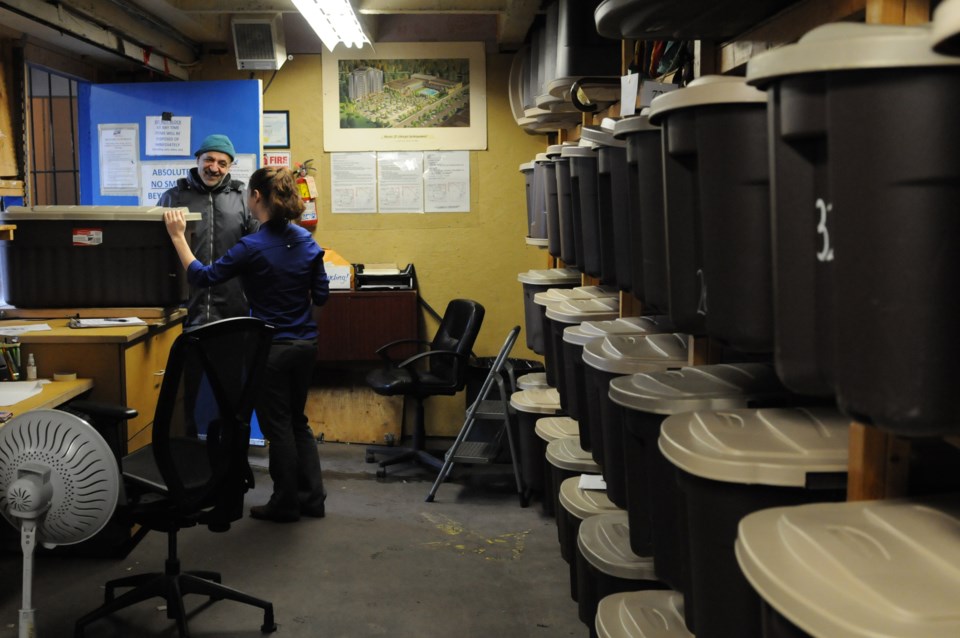The First United Community Ministry Society landed a much-needed $40,000 grant last week to help its popular storage facility for the homeless continue operating for another year. The welcome news also highlighted the annual effort non-profits exert to ensure program costs are covered.
“Multi-year funding is a challenging thing to get and that is true for lots of people in the non-profit sector. It is something we do have to put energy into year-to-year,” explained Heather Forbes, First United’s communications coordinator.
“For this program, and for other programs, it’s always something we have to plan time for, but that’s just part of the world we live in and I don’t think we’re in a unique situation with that.”
First United earned the $40,000 grant through the Aviva community fund. The public votes on nominated projects and, if the project earns a place in the finals, a panel of judges chooses grand prize winners, according to criteria such as longevity and sustainability.
The storage facility program, which launched at the end of 2009, was established through one-time-only City of Vancouver funding related to the Olympics. It operates seven days a week and provides 200 units of storage for use by homeless people or those with precarious housing.
Users are assigned a storage unit — a rubber bin that can hold up to 50 pounds, or a place for their cart or luggage. They must check in once a day so staff can ensure they haven’t abandoned their belongings.
Users can access their property as often as they like during operating hours. The facility is in First United’s underground parking and takes up about four to six parking spots. It costs roughly $60,000 to operate, with the bulk of the budget going towards staff who manage access during operating hours.
Forbes said some people use the facility while they’re in crisis for less than a month — perhaps if they’ve lost their home or if they just arrived in Vancouver. Some use it for less than three months, while a small number use it for more than a year.
“They’re perhaps street entrenched or they don’t feel comfortable keeping their belongings where they are physically staying,” Forbes said.
It’s such as well-used service that on some days First United has to turn people away because it’s full.
But every year, the society has to seek funding from a variety of sources. Individuals contribute cash, as do various groups. One of its major funders has been Hockey Helping the Homeless, which provided $30,000 last year.
“They have supported us in the past. We don’t have funding from them for 2015, but we’re very hopeful that they will support us again in 2015,” Forbes explained.
First United resource development manager Natalie Lanoville managed the successful Aviva campaign with help from volunteers with social media experience.
Forbes said it definitely gets more difficult to attract funding for particular programs as the years go on and new programs capture the public’s attention and interest.
“A lot of funding programs tend to go towards new projects, so it does become more difficult for projects that have been around for a long time.”
What’s great about the Aviva fund, according to Forbes, is that it’s visible and driven by individuals.
“We get individuals caring about [this project] specifically, so we get individuals starting to direct donations specifically to the storage facility. That helps with our long-term sustainability,” she said. “Although this grant is for only one year. It has returns in a lot of different ways because it makes individual donors more aware of us and it makes potential partners more aware of us in the future.”
[email protected]
twitter.com/naoibh



